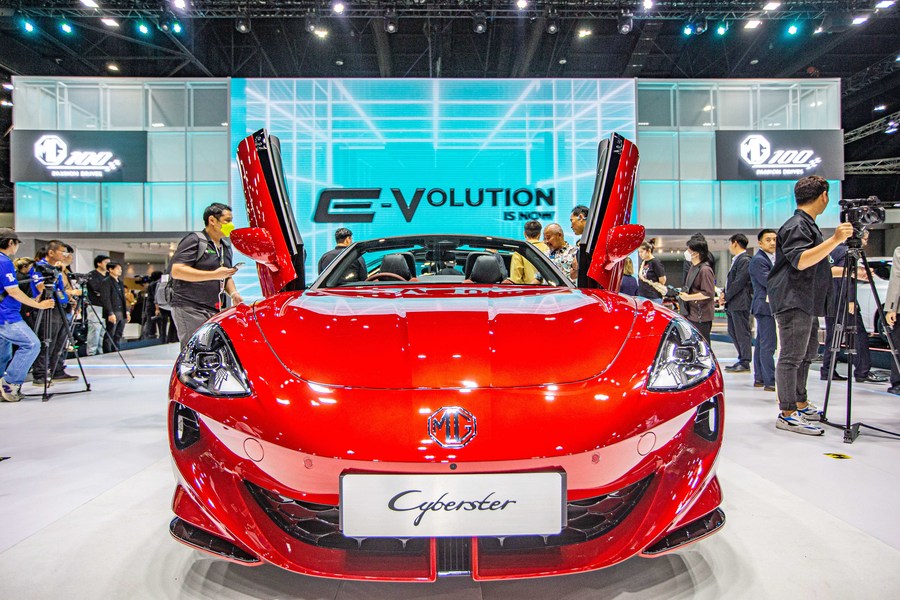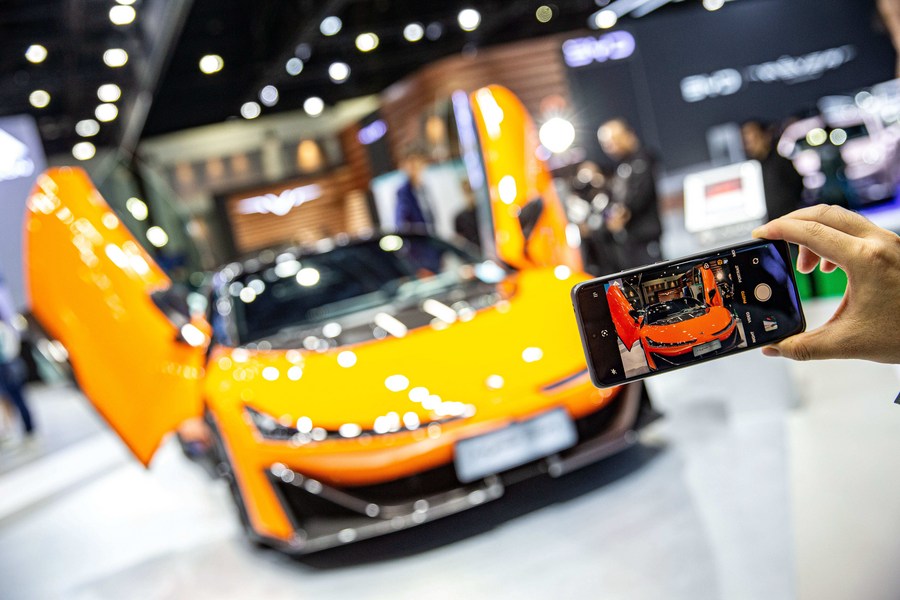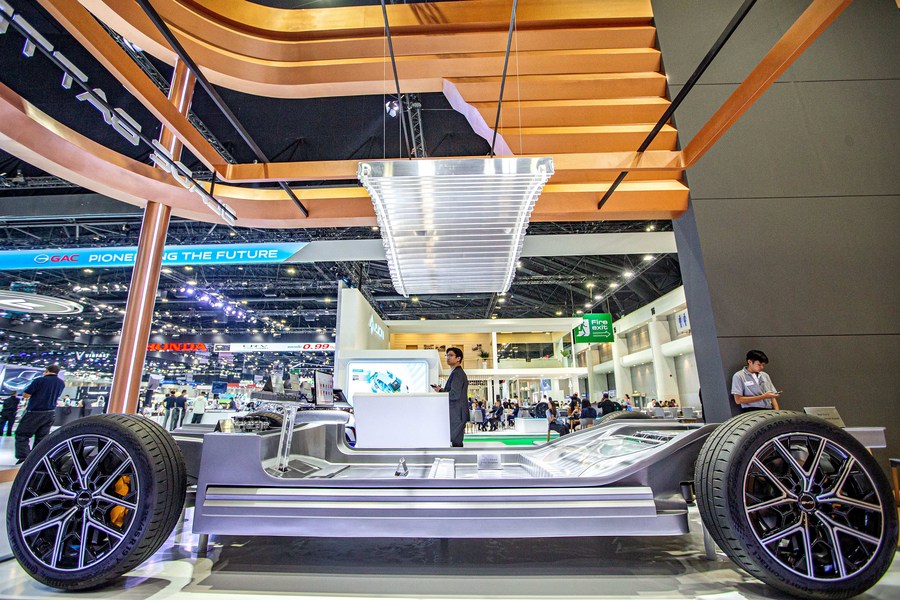China's EVs shine at Bangkok int'l motor show

Visitors look at an MG Cyberster during the 45th Bangkok International Motor Show in Bangkok, Thailand, March 27, 2024. (Xinhua/Wang Teng)
China's EV brands like MG Cyberster captivated audiences at the 45th Bangkok International Motor Show, and are thought to reshape the landscape of the automotive industry.
by Gao Bo, Chen Jiabao
BANGKOK, March 31 (Xinhua) -- With high quality, innovative designs and competitive prices, China's electric vehicle (EV) makers are shining at the 45th Bangkok International Motor Show (BIMS).
The 12-day show opened to the public on Wednesday and brought about 49 major auto brands to customers, with at least 20 new models launching at the motor show.
MG Cyberster, an electric two-seat convertible sport roadster launched by MG motor at the show for the first time in the Association of Southeast Asian Nations (ASEAN), capturing the hearts of car enthusiasts.
MG motor, owned by SAIC Motor, entered the Thailand market in 2019 and saw its first locally produced EV roll off line in the Southeast Asian country last November.
"As one of the earliest Chinese brands entering Thailand, we have launched a full range of products from fuel-powered vehicles to EVs in the Thai market in order to meet customers' demand," said Xu Yin, president of MG Sales (Thailand).

A visitor takes photos of a Hyper SSR at the booth of GAC Aion during the 45th Bangkok International Motor Show in Bangkok, Thailand, March 27, 2024. (Xinhua/Wang Teng)
As newcomers, Chinese automakers such as Geely's Zeekr and Xpeng debuted at the show and unveiled their latest EVs to Thai customers.
Alex Bao, head of Southeast Asia region for Zeekr, said that their company is currently expanding globally and has signed cooperation agreements with Laos, Myanmar, Thailand, Malaysia and other Southeast Asian countries.
"Thai consumers' acceptance of EVs has increased significantly in these years, so entering Thailand is an important step to expand overseas markets and Thailand will serve as regional headquarters for our company," said Bao.
The BIMS provides a convenient platform for car exhibitors and customers. Krienyot, 68-year-old Thai customer, and his wife were very excited to see more and more Chinese EV brands enter Thailand, which gave them more choices.
Krienyot said they already owned one BYD car, whose advanced battery technology, features and value for the money greatly impressed him.

A visitor looks at a BYD e-Platform 3.0 during the 45th Bangkok International Motor Show in Bangkok, Thailand, March 27, 2024. (Xinhua/Wang Teng)
"We enjoy the car because of its high performance. The EV is more economical and the battery can drive for up to 600 kilometers by charging once," said Krienyot.
He added that some cars at the motor show are smarter than he imagined and he plans to buy another Chinese EV brand at the motor show.
Thailand has long been a major automobile production base in Southeast Asia due to its industrial chain and geographical advantages. The Southeast Asian country is seeking to convert about 30 percent of its annual vehicle production into EVs by 2030.
More than 80 percent of newly registered battery electric vehicles (BEVs) in Thailand last year were Chinese brands, data released by the Thai Land Transport Department showed.
Suroj Sangsnit, vice president for Industry and Business Development of EV Association of Thailand, said there are more and more Chinese EV brands in Thailand, bringing supply chain partners and boosting job opportunities for the Thai people.
China's EV makers play a key role against the backdrop of making Thailand a major EV hub in ASEAN, he said.


